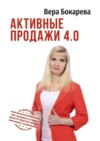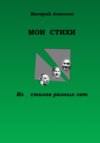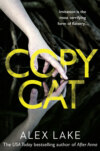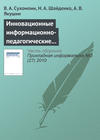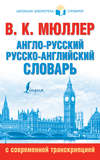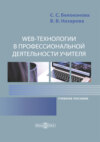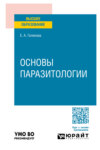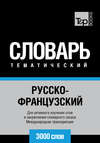Читать книгу: «Chinese Rules: Five Timeless Lessons for Succeeding in China»
CHINESE RULES
Five Timeless Lessons for Succeeding in China
Tim Clissold

Copyright
William Collins
An imprint of HarperCollinsPublishers Ltd
1 London Bridge Street
London SE1 9GF
This eBook edition first published in Great Britain by William Collins in 2014
Copyright © Tim Clissold 2014
Cover images © Shutterstock
Tim Clissold asserts the moral right to be identified as the author of this work.
A catalogue record for this book is available from the British Library.
All rights reserved under International and Pan-American Copyright Conventions. By payment of the required fees, you have been granted the non-exclusive, non-transferable right to access and read the text of this e-book on-screen. No part of this text may be reproduced, transmitted, down-loaded, decompiled, reverse engineered, or stored in or introduced into any information storage and retrieval system, in any form or by any means, whether electronic or mechanical, now known or hereinafter invented, without the express written permission of HarperCollins.
Source ISBN: 9780007590285
Ebook Edition © August 2014 ISBN: 9780007590261
Version: 2016-03-02
Praise for Mr China
‘An instant classic’ Time
‘A wonderful read … one might not expect such poetry from a banker’ New York Times
‘It’s got big money, charismatic capitalists, Communist apparatchiks, crime and mysterious disappearances … [but] it’s not just a novel – it’s true’ Telegraph
‘No business history can ever have been such an enjoyable read … any visiting businessman should be obliged to buy a copy’ Chris Patten, the last Governor of Hong Kong
Dedication

‘harmony’
for Lorraine,
for my brothers Oliver and Max,
and for the memory of Lizzie Hicks
To fight and win a hundred battles is not supreme excellence; the greatest General avoids war and overcomes his adversary without fighting.

THIRD SECTION, SUN TZU’S THE ART OF WAR, c. SIXTH CENTURY BC
CONTENTS
Cover
Title Page
Copyright
Praise for Mr China
Dedication
A Chinese Chop
1. Even a Beast Like a Thousand-Pound Ox Must Lower Its Head to Drink
2. A Tree May Grow to a Thousand Feet, but the Leaves Still Return to Their Roots
3. When the Horse Has Reached the Edge of the Cliff, It’s Too Late to Draw on the Reins
4. Up in the Sky There Is Paradise, but Down on the Earth We Have Hangzhou
5. The First Chinese Rule: How Can We Go So Far as to Change the Regulations of the Celestial Empire – Which are Over a Hundred Years Old – at the Request of One Man – of You, O King!?
6. Sacrifice the Plum Tree in Order to Save the Peach
7. The Second Chinese Rule: The Long-Divided Shall Unite; The Long-United Shall Divide
8. Learn from the Past; Seek Truth from Facts
9. The Flowers on a Liverwort May be as Small as a Grain of Rice, but They Still Want to Blossom Like a Peony
10. The Third Chinese Rule: The Art of War Is of Vital Importance for the State; It Is a Matter of Life and Death; the Road to Safety or Ruin That Should on No Account Be Neglected
11. When Master Jiang Hangs Out His Hook, It’s the Willing Fish That Gets Caught
12. Kill with Borrowed Knife
13. The Fourth Chinese Rule: Cross the River by Feeling for the Stones
14. Who Could Say It Was Gain or Loss, When the Old Man Lost His Horse?
15. The Fifth and Final Rule: Know Yourself and Know the Other and You’ll Survive a Hundred Battles
Footnote
Bibliography
Author’s Note
About the Author
Also by Tim Clissold
About the Publisher

A Chinese Chop
1

EVEN A BEAST LIKE A THOUSAND-POUND OX MUST LOWER ITS HEAD TO DRINK
Traditional peasant saying: Even the most capable must sometimes ask for help.
I almost didn’t answer the call. I had been gazing absentmindedly out at the hills and the purple splash of heather as the train sped south towards York. But the carriage was almost empty so I took out the phone and clicked on the button. A voice confirmed my name and asked abruptly if I could go to China. Glancing around me, I whispered, ‘I can’t really take a call right now. I’m in the quiet coach, you see.’
‘Well, you’d better call me back right away. Didn’t you get my messages?’ said the voice with a snort. And then the line cut out.
London was still a couple of hours away, so I waited a while as the stone towers on the Minster receded into the distance. The landscape levelled out around York and, farther south, a network of canals stretched out in straight lines towards the horizon; lock gates and brick guardhouses passed by the window. Along the old toll paths, the willows tossed about in the wind, casting long, rolling shadows in the late summer sun. I wandered down to the end of the car and, leaning against the doorway, clicked on the number. The voice that answered immediately launched into a story.
‘Okay, so we’ve got this deal in China,’ she said, ‘and we need your help urgently. There’s this big factory in Zhejiang – you’ve been to Zhejiang of course but maybe not to Quzhou.’
‘Er, yeah, I think I’ve been to Quzhou.’
Another snort. ‘I doubt it, this must be a different Quzhou. It’s miles from anywhere, stuck right out in the middle of the outback, a couple of six-packs from Hangzhou.’
‘Yeah, that’s the one,’ I said, noticing an Australian accent.
‘Really?’ She paused for a moment, but quickly resumed the story. ‘Anyway,’ she said, ‘we signed up to buy truckloads of carbon from a chemical factory down there and now it looks like the whole thing’s gone belly-up. We found some lawyers in Beijing who said that you’d help us.’
‘Lawyers?’ I asked.
‘Haven’t they briefed you yet?’ asked the voice. ‘They promised they’d call you. Now the Chinese partner wants to change everything.’ The voice groaned, apparently addressing itself. ‘This is the biggest deal that’s ever been done by private investors,’ she said, shooting her attention back to me. ‘We’ve got fifteen million tons of carbon hanging by a thread, and now they want to change the whole deal!’
‘Carbon?’ I said, glancing sideways through the window and deciding it was time to end the call. ‘Look, I’m really sorry, but I don’t know anything about the chemical industry. You must have got the wrong lawyers.’
‘Not that type of carbon.’
‘Catalysts or something is it? Look, fifteen million tons of carbon sounds like a hell of a lot to be moving around in China.’
‘What?’
‘You got transport organized?’ I asked. ‘The railways can be a nightmare,’ I said. ‘You know they’ve still got steam engines running out there?’
‘Not that kind of carbon!’ said the voice again, shifting markedly upward in pitch. ‘Credits! Not the black stuff!’ There was a sigh and a mumbled comment I didn’t quite catch above the clatter of the tracks.
‘Oh,’ I said. ‘Right.’
‘Let’s just back up here for a minute,’ she said. ‘We have a deal to buy carbon credits from a chemical factory in Quzhou. They make stuff used in fridges and air conditioners, right?’
‘Oh, yeah? So where does the carbon come in then?’ I continued sceptically. This really wasn’t making much sense. The connection cut out and the carriage shook violently as the train roared through a tunnel. She called me back immediately.
‘Wait! The chemical plant is chucking out greenhouse gases big-time, so we’re helping them put in new equipment, incinerators that’ll burn up the gas. That way, we get credits that we can sell on in Europe. Buyers are desperate for this stuff!’
‘Uh-huh …,’ I said, concluding that I was dealing with a nut. ‘Look, I’m sure this is all really interesting, but I’m quite tied up at the moment. Perhaps you could—’
‘No, listen,’ she interrupted. ‘This is deadly serious.’
She went on to explain that the project was the largest greenhouse gas reduction project ever attempted by private investors. ‘We just have to make this work,’ she said. ‘If we get it right, it could kick-start the whole market.’ The Chinese factory had agreed to put in equipment that burns up gases from the production line, which they’d been venting out into the air. ‘It’s really bad stuff,’ she said, ‘millions of tons of gases just blowing up into the sky and all they have to do is put in incinerators to burn it up.’
‘So why don’t they just put them in anyway then?’ I asked.
‘There’s nowhere in China that makes the equipment; they have to import it from Japan and they don’t have the cash. So we agree to buy the credits, and the factory shows the contract to the bank to get loans to buy the equipment. That’s the whole point of the CDM, right?’
‘Er … maybe,’ I said vaguely.
‘CDM. It’s part of the Kyoto Protocol for reducing greenhouse gases – Kyoto, right?’ she said doubtfully. ‘The factory puts in the equipment, burns up the gas, and the UN gives them carbon credits that we can sell on in Europe. Both sides make money, we cut down on greenhouse gases, and everybody’s happy.’
‘Sounds a bit far-fetched to me. You been doing this long, have you?’ I added suspiciously.
‘Well, yes actually,’ she said. ‘I did five years at the World Bank. We did deals all over the world … Indonesia, Nepal, India, China, Venezuela. Six months ago I moved to London and joined a carbon outfit here.’
The phone cut out again.
‘Sorry, I didn’t quite catch that,’ I said once we were reconnected.
‘Yeah, I was just saying that I joined a carbon outfit in London but at first no one else here wanted to do this deal – can you imagine it? The biggest carbon deal on the planet and they got all nervy and started asking all sorts of questions.’ Another snort. ‘Anyway, I went right out on a limb and got the Chinese to sign up to sell us the carbon. When I took the letter back to London, man, they were crazy as a snake. There wasn’t enough money in the first fund so we went out and raised a syndicate. Wang’s just called from China and wants to change the deal. The syndicate is wobbling and it looks like the whole lot’s about to go down the chute. Anyway I don’t have time for all this. Cut to the point; when can you come out to China?’
‘Er …’
‘We need to get out there as quickly as possible. I’ve got a flight booked for this evening.’
‘This evening!? But I don’t even get into London till after five …’
‘The flight’s not till eight, so you’ve got plenty of time to get across town. The guys in Beijing said you’d help us …’
‘I don’t even have my passport with me,’ I explained. ‘It’s up in Yorkshire.’
‘We’ll send a taxi to fetch it.’
‘Are you crazy? That’s a couple of hundred miles! And anyway, I don’t have any business clothes with me.’
‘Buy some at the airport.’
‘But I don’t know anything about carbon or Kyoto or any of that stuff …’
‘Read up on it on the plane,’ she said.
‘And my visa’s just expired,’ I said.
She seemed momentarily stumped.
‘We’ll get you one in the morning. I’ve got plenty of mates at the embassy. Hang on a moment …’
She put her hand over the mouthpiece and there were a few muffled comments before she came back to me.
‘Okay, we’ve got seats out tomorrow,’ she said. ‘We’re on the four o’clock flight out to Hong Kong.’
‘But …’
‘I’ll meet you in the business lounge.’
‘I …’
‘And by the way,’ she said, ‘the name’s Mina.’
2

A TREE MAY GROW TO A THOUSAND FEET, BUT THE LEAVES STILL RETURN TO THEIR ROOTS
‘Wanderers eventually return to their native soil.’
—The Story of a Marital Fate to Awaken the World, an unattributed Qing Dynasty novel
Behind the Forbidden City stands a hill, which – legend has it – hides a vast reserve of coal for use in times of siege. Each morning, just before dawn, people gather in the park below the hill for exercises. A group of women practise swordplay with their arms outstretched and blades held upright, turning on one heel. An older man shambles past with a battered canvas bag, half running, half walking, towards his usual spot among the flowerpots by the dragon-claw scholar-trees. There he fills a bucket with water, dips in a long brush, and silently practises calligraphy, writing with long, flowing brushstrokes in the dust on the paving stones at his feet. All around, hidden among the bushes, the exercisers stretch and bend and shout to greet the dawn.
I often looked out from the hill as the first rays of sunlight struck the corner watchtowers on the Forbidden City below. In the 1980s it was easy to imagine that Beijing had hardly changed since imperial times. Around the palace complex with its maze of pavilions and passageways, the sloping roofs of a thousand courtyard houses stretched out flat towards the horizon. In the late springtime, a thin layer of mist would trap the smell of fresh leaves in the damp air hanging in the alleyways. Towards the end of the summer, in the main Party compound beside the Forbidden City, lotus flowers poked through the greenery that floated about on the lakes; crooked pathways ran over little stone bridges between the pavilions along the banks. Back then, there was something about Beijing that felt simple and content; the city ran in a daily routine where everything had its own allotted place and a clear role in life. There was a pattern to the day in the old hutong alleyways, a rhythm to the hours and seasons, a closeness to nature that felt unusual in the midst of such a vast city. Up on the hill, it seemed as if the odd honk of a passing Liberation Truck was the only reminder of the turning of the centuries. But when I looked more closely through the haze towards the west, I could pick out the vague and distant outline of factories standing out against the mountainsides. Smokestacks and towers of twisted pipework rose up at the foot of the hills. A trail of smoke drifted from an iron foundry. In the other direction, heaps of coal and ash marked the site of the city’s main power station and electrical towers marched off in straight lines towards the south. These were all the early signs of modernization and in those days, I never gave it a thought. But if you were to go back to that hill and look out over the great city today, you would find a very different sight.
I first arrived in Asia in the eighties after I was posted to Hong Kong from London. I’d never been there before, and from the moment I stepped from the plane and through the wall of dense wet heat, I knew I was in a different world. Giant Chinese characters shone in neon lights from the tops of ten-storey buildings. Wherever I looked, there were people hammering in tiny factories, unloading from boats, bargaining in alleyways. Office workers sat crammed into dumpling restaurants between stacks of bamboo steamers. The streets reeked of dried seafood and Chinese medicine and the air was filled with the honking of taxis and clattering of trams. I had no idea that such a concentration of human life could exist in such a state of perpetual motion. The intensity of life in Hong Kong was something completely new to me. Almost immediately, I felt drawn to China.
The following year, I quit Hong Kong and found a place at a university in Beijing to learn Mandarin. It was the year after the tanks had rumbled onto Tiananmen Square and there were almost no other foreigners around. At first the students there sought me out to practise their English, ignoring the bizarre rules about ‘spiritual pollution’ that were meant to keep us apart. But their English was so good that I felt awkward speaking Mandarin with them, and so I started spending more time away from the university, in places where people knew nothing of foreigners. After a while, I could manage simple conversations and slowly grew to recognize the Chinese characters on the shop signs and the notices around me. I found my way more easily through the tangled network of old hutong alleyways that spread around the old imperial buildings at the centre of the city. I often went back to Coal Hill to find the calligraphy man practising his characters with his water brush on the dusty paving. He would write out characters on the stones at his feet while I tried to catch the meaning of the flowing brushstrokes before they began to fade and disappear.
My student days were short-lived and I soon joined an investment firm run by a Wall Street veteran who was building the first large foreign direct investment business in China. Over the period of a few years, he’d raised $400 million and pumped it into twenty factories across China, ending up with nearly twenty-five thousand employees.
The speed of China’s development in those years was difficult to take in; around the Yangtse and Pearl River deltas, shiny new cities rose up out of marshlands in just a few months. Little fishing villages became gigantic container ports, hydroelectric dams choked mighty rivers, and four-lane superhighways were blasted through rock faces. For more than a decade, China existed in a state of supreme upheaval. The government fought to maintain order as it embarked on a programme of massive reform, removing the props of the command economy while billions in foreign investment poured into the coastal provinces. As China awoke from a century of slumber, deep within the interior 150 million workers rose up out of the country villages like a tidal wave and swirled towards the coast.
Many of the factories we had invested in were in remote regions of China, where central authority was weaker. ‘The mountains are high and the emperor is far away,’ goes the old provincial saying about the distant authorities in Beijing. The country is too big to be controlled from a single centre, and unless events catch the attention of Beijing, local interests can often take over. We became embroiled in unequal disputes in far-flung places. Land was transferred out of our joint ventures to prop up loans for other local businesses. Bank transfers and capital investments were made without approval, cash was stuffed into safes in back offices with no records, and contracts were routinely ignored. For a long time, it looked as though we might lose the investment.
It took years to sort out the mess, and during that time, I travelled to almost every province in China. We had strikes and lockouts, sieges and court cases, and had been pursued across the country by officials with writs and freezing orders. But gradually, over a period of several years, the relationships with our Chinese partners smoothed out and the businesses started making money. We got better control of the assets and sales started to grow on the back of the China boom. Most of the investment was saved, together with the jobs of the twenty-five thousand workers, but after nearly seven years in the combat zone of Chinese investment, I was exhausted. I needed some time out to think.
Several years earlier, I’d married my old college classmate – ou duan si lian, as the Chinese would say of a reconnected love-affair: ‘lotus roots may snap but their threads stay attached.’ When Lorraine came to live in Beijing, life’s possibilities multiplied overnight. She had arrived with two small boys – my stepsons Max, aged five, and Christian, who was three – followed a year or so later by our children, Sam and Honor. Weekends were taken up by trips out to remoter parts of the Great Wall, scrambling up the Ming Tombs with a couple of dogs or splashing about on Kunming Lake at the Summer Palace. The foreign community was small in those days and there was still a sense of adventure about a posting to Beijing.
Around the time I was thinking about moving on from the investment business, Lorraine came home one day with news that she had found an old courtyard home for rent about a mile or so east of Tiananmen Square. Hidden in a backstreet, it had been part of the former residence of a Qing Dynasty official; I didn’t need much persuading to move back to the old alleyways.
The courtyard had a large south-facing hall behind a row of red lacquered columns. It stood on a stone terrace looking out onto a garden where an old wisteria climbed up into the carved woodwork under the eaves. The alleyway outside was named after the old imperial grain warehouses. Farther down, clouds of steam rose from a line of shabby street restaurants. At lunchtime, they were packed with labourers from the provinces. Oil drums stuffed with red-hot coals lined the street; cooks in white hats threw handfuls of Sichuan peppercorns into their woks as they shouted out for customers. At the end of the street, there was an old Buddhist temple with big bronze studs on the doorways and glazed black tiles on the rooftops. Inside, a drum tower stood next to a huge cherry tree that burst into blossom in springtime. During festivals, there were concerts in the temple and the air was filled with the smell of incense and the strange chanting of monks. For me, it felt completely natural to be back in the hutongs and connected to the old way of life. On our first night, as I sat in the courtyard with the children, a storm rolled across the city and chunks of ice fell down among torrents of warm water. But after the downpour, the skies quickly cleared and the familiar smell of stir-fry drifted over the wall from next door. The stars came out and, high above our heads, a kite tugged a long trail of candlelit lanterns across the sky, tiny red dots dancing about against a backdrop of darkening blue.
After we moved to the hutong, I took a few months off from work to try to make sense of what happened to the investment business. The prospect of losing so much money and the lessons learned in the fight to recover it had forced me to dismantle entirely my ideas about dealing with China. I had been made to rethink some of my most basic assumptions. One thing was for sure: if you stuck by Western rules, you were finished.
I’d learned my hardest lesson after we’d been hit by a fraud in the southern city of Zhuhai, which sits next to the old Portuguese colony of Macau, far away on China’s southern coast but not so far from Hong Kong. We’d invested about $8 million in a brake-pad factory down there but a few months after we wired in the money, the factory director went on a trip to the United States to attend a trade fair in Las Vegas – and he didn’t come back. We discovered subsequently that he had gone to Hong Kong with four letters of credit – like unbounceable cheques drawn against our account – with a face value of $5 million. There he exchanged them for cash and – carrying what the police described as ‘a large suitcase’, presumably containing the banknotes – he boarded a plane for America. That was the last that we heard of him. In the seat beside him on the way out was the deputy bank manager of the branch that had opened the letters of credit. It was obviously a scam.
Our response to the news had been catastrophic. When I tried to explain what had happened over the crackling phone lines to New York, there had been an instant, knee-jerk reaction. The directors there immediately ordered a highly sophisticated legal operation involving hordes of expensive lawyers all waving worldwide Mareva injunctions, which were aimed at freezing the bank’s assets on the basis that the branch officials must have known about the scam and that the bank was therefore liable. The case ended up in China’s Supreme Court and, after two years of pointless arguments, we lost. It was a disaster – I remembered bitterly that when the factory director had disappeared from Zhuhai, our cash was still in the account because the letters of credit had not yet been presented. One of our other Chinese factory directors had looked at me with a slightly puzzled expression and asked, ‘Why did you go to the court? You could have just transferred the cash out in small amounts without the bank noticing and when the documents arrived, they’d be left with the bill.’ We’d done the opposite; the board had metaphorically marched up to the city gates, announced a full frontal assault, and then assailed the bank with highly sophisticated legal weaponry that was completely useless for dealing with the actual problem. As soon as the bank realized what was going on, they took one look at the court papers, made a quick call to the local government, and froze all our accounts. We never recovered a cent.
Those seven years on the front lines of Chinese business taught me that foreigners had no way to impose their ideas on China from the outside; I’d learned the hard way that if you wanted to survive in China, it had to be on Chinese terms. I had been forced to think through new ideas as basic as how society, business and government could be organized and how to compete on foreign terrain. There seemed no option but to abandon some of the basic assumptions I’d brought with me from the West. I could see that China had its own modes of behaviour, its own conventions, and accepted ways of doing things that were different from our own. China’s way of working seemed difficult to pin down, but every country, every society has its own internal logic; it may not be obvious from the surface but I felt there must be some overarching rationale, some consistent narrative to how China worked. Perhaps it was something in my background that made me seek a more ordered explanation to the chaos I had found around me; perhaps it came from studying physics in university, where universal laws are used to explain diverse and seemingly unconnected observations. I found myself searching for an underpinning to the Chinese universe, reference points or clues to a larger framework that might help me navigate these foreign waters, something that might reveal how it all fitted together. China’s special logic was elusive and hard to define precisely, but I knew I’d never be satisfied if I didn’t at least make an effort to uncover it.
In the southwest of Beijing there is an area of winding alleyways around Tile Factory Street where, in the fifteenth century, ornate ceramic ornaments were fired in charcoal kilns for the rooftops of the great Ming Dynasty palaces. Three hundred years later, the area around the factory had grown into a cultural centre, where scholars, poets, and artists gathered to exchange ideas and practise calligraphy. Today the narrow streets are lined with shops piled to the roofbeams with books and scrolls; local painters come there to find paper, brushes, ink stones and seals. I often visited the bookshops, with their rickety staircases, dusty display cases, and the burnt, earthy smell of Chinese calligraphy ink. At the back of one of those bookshops, there was a room lined with battered bookcases devoted to Chinese history and ancient theories of war. I had heard about Sunzi, but had never really taken The Art of War too seriously; tales of battle plans from the sixth century BC had seemed too remote to be of much use in the modern age. But I found the shelves there lined with piles of cloth-bound books I had never heard of, like the Book of Qi and the Records of Tan Daoji. I discovered an enormous volume of historical records covering power struggles, plots, and intrigues stretching back well past the time of the European Dark Ages. At first I couldn’t understand the antiquated Chinese language, with its ancient, recondite characters, so I sought out translations, trying to put the Chinese and English together to look for the deeper meaning. I dipped into an old collection of battle plans called the Thirty-six Ruses. There I found set-piece strategies, with strange names like ‘The Beauty Trap’, ‘Take the Wood from Under a Cauldron’, and ‘Kill with Borrowed Knife’. Elsewhere, I found a Han Dynasty strategy that set out the ‘Five Baits for Enticing Foreigners’. I sensed an obliqueness in the approach that contrasted with the direct assault favoured by Westerners. I found more emphasis on timing and surprise, on harnessing external conditions rather than just relying on firepower, and on ways of deceiving a more powerful enemy. There were unexpected twists: in Sunzi’s world, the supreme general avoids war altogether and overcomes without fighting. ‘Overcomes without fighting,’ I thought. ‘What did that mean?’ I bought several of the books and found ideas that helped explain things that had happened at our factories. I was wondering whether they could all be collated into a more coherent pattern when I was suddenly contacted by some investors in Hong Kong.
At the turn of the millennium, as China prepared to join the World Trade Organization, the government realized that the banking system was crippled with uncollectible loans and they decided to do something about it. I found myself tempted by the idea of helping to clear up the mess, so I went to work for one of the big American investment banks that had just entered the new market for ‘distressed debt’ in China.
During the forty years of the planned economy, Chinese banks had given money to factories and work units under the central state plan rather than on the basis of commercial logic. Many of the borrowers had no hope – or even intention – of making repayments. The result was a mess of truly astronomical proportions, with about $700 billion worth of uncollectible debts – known as ‘nonperforming loans’ or ‘distressed debt’ – clogging up the banking system. Faced with the prospect of a complete financial meltdown, the Chinese government started restructuring the banks and selling off tranches of these nonperforming loans to foreign investors at reduced prices. The American bank had bought up several of these portfolios and I was hired to retrieve something from the wreckage.
Бесплатный фрагмент закончился.
Начислим
+21
Покупайте книги и получайте бонусы в Литрес, Читай-городе и Буквоеде.
Участвовать в бонусной программе


